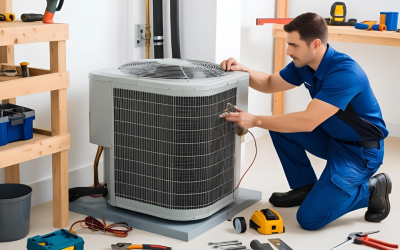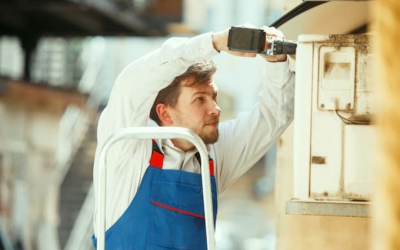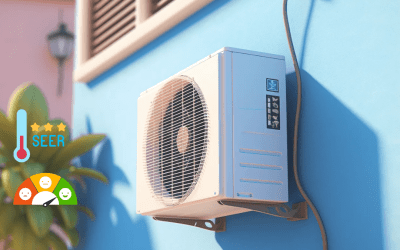
Ensuring that your HVAC system is in perfect condition during winter is not an option- it’s a necessity. The sweltering months of summer may be of great discomfort when your air conditioning system is broken down, but if you wait till winter, respiratory illnesses won’t be the only thing you’ll be dealing with. Dampness in the house causing mold growth and damage of furniture will be on top of your list. Understanding how the compressor works, and the early tells signs of a failing one, will help you take action before the whole system shuts down.
As a human body can’t function without a heart, the HVAC system would be as good as dead without a compressor. The compressor’s work is to compress the refrigerant gas (no wonder the name), and circulate it through the system. Most HVAC models have external compressors that look like a black box with lines running to and from it. When a HVAC compressor fails, it’s often due to other underlying issues. It’s important to note that fixing compressors is quite expensive and sometimes even impossible. In most instances, one has to buy a new compressor when the existing one fails. On this note, even if you replaced the failed compressor without addressing the underlying issues, the new one is likely to fail as well.
Clogged coils are a common cause of compressor break down. Over time, the condenser coils in the AC and heat pump get clogged with dust, and debris. When this happens, air flow through the coil gets restricted and the temperature in the heat pump condenser rises. This strains the compressor, forcing it to work harder to pump the refrigerant through the heat pump. The prolonged distress on the compressor causes it to pull more amperage making it heat than normal. Although a compressor features in-built protections against overheating, these protections are prone to fail under extreme conditions. Eventually, the compressor overheats, burns out and fails. To remedy the situation before it’s too late, once you notice your HVAC system is not cooling or heating as it normally does, call a licensed repair technician and have them inspect your system.
Low refrigerant charge is the other cause of compressor failure. Refrigerant is the substance that absorbs and removes heat from the cooling chamber by flowing through the system. The condenser and compressor are responsible for converting the refrigerant from liquid to gas and back again. For this process to happen, there’s a recommended refrigerant charge. A system that was installed incorrectly or a leakage in the system may both cause low refrigerant charge. Cracks or holes in the regrant lines also cause low refrigerant charge. When the refrigerant levels become too low, the compressor will have to work harder to perform its tasks and eventually, it’s deemed to break down. If you notice longer cooling cycles, an upsurge of energy bill that you can’t trace, and frozen refrigerant lines, call your technician for an inspection.





